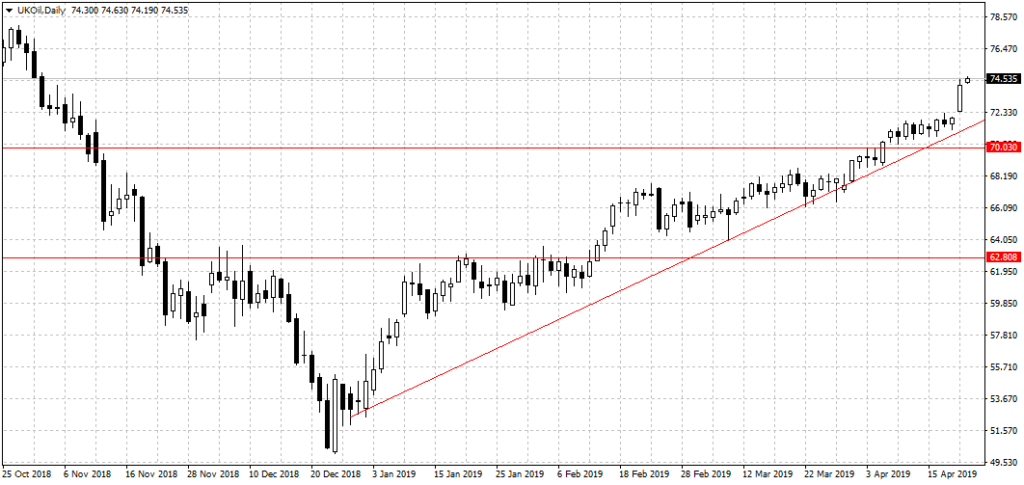- Iran Sanctions: Trump Pushes Oil To $74 a Barrel
Oil price rose on Tuesday to a six-month high after President Donald Trump announced he would end waivers that allowed countries to import crude oil from Iran without repercussions from the world’s largest economy.
The international oil benchmark, Brent crude, against which Nigeria’s crude is priced, rose by $2.28 to $74.53 a barrel during Asian trading session on Tuesday at 6:30 am Nigerian time. The highest level since October 2018.
 A statement released from the White House on Monday said the waivers granted to eight countries would expire on May 2, after which those nations could face US sanctions if they continue to import Iranian crude oil.
A statement released from the White House on Monday said the waivers granted to eight countries would expire on May 2, after which those nations could face US sanctions if they continue to import Iranian crude oil.
“This decision is intended to bring Iran’s oil exports to zero, denying the regime its principal source of revenue,” the statement read.
The United States had granted exemptions to eight countries patronising Iran when it re-imposed sanctions on the embattled nation in 2018 after President Trump pulled the nation out of the landmark 2015 nuclear deal in May 2018.
China, India, Japan, South Korea, Turkey, Taiwan, Italy and Greece were granted waivers to moderate oil price amid a drop in global supplies.
Trump has now said Saudi Arabia and the rest of OPEC nations could “more than makeup” for any reduction in Iranian oil supplies.
The new development would bolster Nigeria’s foreign reserves and deepen economic growth as India, Nigeria’s largest importer of crude oil, could increase purchase.
Mr Bismarck Rewane, the Managing Director of Financial Derivatives Company Limited, said, “Nigeria will benefit from the US decision to end the waivers but it is a short-term phenomenon. It is not sustainable. We will benefit from that but in the end, the economic diversification cannot be compromised.
“We need to pursue that aggressively because it is only a matter of time before the global demand for oil begins to drop below the supply and, therefore, the price will drop.”
According to him, India would buy more oil from Nigeria.
“India already buys a lot (from Nigeria); it is already buying almost 30 per cent of our crude. So, India is there for us,” Rewane added.
An energy expert, Mr Bala Zakka, said crude oil prices would surge on the back of the decision to end the waivers on Iran oil import.
“For Nigeria, generally, higher crude oil prices will mean higher revenue for the government,” he said.
Zakka, however, noted that Nigeria would also spend more to import petroleum products as the landing cost would rise.

 Forex2 weeks ago
Forex2 weeks ago


 Naira2 weeks ago
Naira2 weeks ago
 Billionaire Watch2 weeks ago
Billionaire Watch2 weeks ago




 Naira2 weeks ago
Naira2 weeks ago




 Naira2 weeks ago
Naira2 weeks ago




 Naira4 weeks ago
Naira4 weeks ago


 Naira6 days ago
Naira6 days ago
 Banking Sector4 weeks ago
Banking Sector4 weeks ago

















